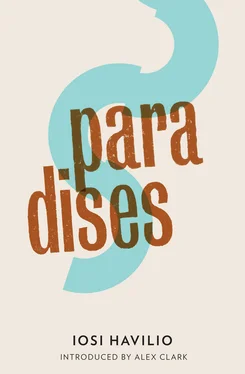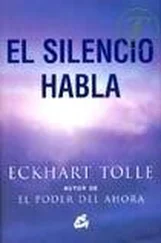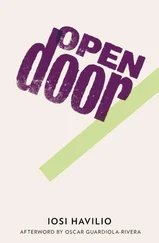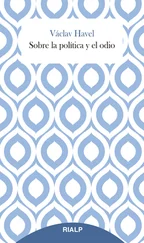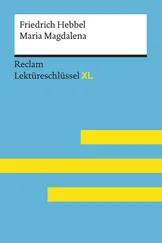Eloísa returns from the bathroom, both fists clenched near her temples and a wide smile, as if celebrating a goal. She says she’s had a great idea and taps her forehead three times with her knuckles. Guess. I think about Axel’s film. No, no. You want to do a runner. Warm, warm, but bigger, much bigger, she says, eyes clear, suddenly a child. I take a gulp of beer, I give in and she squeezes my wrist, lowering my arm. I put up a weak resistance, for seconds. She leans in to me and finally says very quietly: The jewels, you daft cow, we’ll nick the jewels.
She asks me for a pen. Since I don’t have one, she stands up and gets one at the till. She unfolds a paper napkin and starts drawing the plan of the house. The ground floor, which you already know, she says, living room, kitchen, Axel’s little room and the staircase. What staircase? I ask with a silent gesture, lengthening my neck. The staircase. No, never saw it. She insists: Behind the piano. Well, it doesn’t matter, she continues, you saw it but you don’t remember. That’s how you get to the bedrooms. On another napkin she traces the lines that separate the rooms, Axel’s, his sister’s, which is now a guest room, his parents’. Here’s the bed, the bathroom on one side, it’s enormous, it has a jacuzzi and everything, there’s the dressing room. You have no idea. At the end of the wardrobe she marks an asterisk so hard that it perforates the paper: That’s where the jewels are, in a safe behind a mirror. She waits for my reaction. I can’t tell whether this is a sophisticated joke, so I stay quiet. She continues: I haven’t told you the best part, I know where they keep the key. I must be looking at her with incredulous eyes, more than incredulous, stunned, spellbound. We’ll get rich, understand? She makes the sign of the cross with her index finger over her lips and concludes: I swear in God’s name.
The mix of marijuana, pizza and beer clump together in my guts to form one single, rancid, reverberant mass of taste that rises in my throat in the form of a retch. A false retch that still prevents me from closing my mouth. Walking the few blocks back to the building, I feel like I have a flowerpot on my head. More than that, my whole head has turned into a cube of dry earth. Hard. It’s already night-time when I arrive. Simón and Herbert are sleeping together, back to back. I wonder whether they’ll have eaten anything. Impossible to tell: there are no traces of anything, no smells, rubbish, dirty plates. I feel like a ghost.
The dream is so real that I wake up with vertigo and bad heartburn. Mercedes is pursuing us through the building. Herbert, Sonia and Simón manage to slip down the stairs, celebrating their freedom with playful laughs. He catches me with a swipe and drags me to the lift shaft. There, he lets go of me and skewers me with his hard cock, like a bull’s, colossal. He fucks me in the air, right next to the abyss.
Morning in the plaza. Swings, slides, taxi drivers drinking coffee, too much sky for the city. Sitting in the sand, I take off my shoes and entertain myself burying and exposing my feet. My toes are covered in grains of sand that pile up on the skin like minuscule living beings. Thousands of little blond men with the singular mission of sinking and allowing themselves to sink. And at that moment, passing from one state to another, when the toes stop being toes, the instant at which the knuckles have no beginning or end, the deformity is revealed. My deformity. A different kind of decomposition, through concealment, that leads to the same nothing, the same mystery as ever. A horn beeps and it’s goodbye abstraction. Simón is carefully swinging his motorcycling cat back and forth until suddenly he ducks his head and gives it a hard push, launching it like a rocket.
I shake my feet, leave the sandpit and sit on the cement border around the plaza, my back supported by the railings. I start emptying my pockets, between notes and coins I count eighteen pesos. Rolled into a ball, the napkin on which Eloísa drew her plan of Axel’s house, the first floor, the bedrooms, the route to the jewels. She didn’t stop talking for half an hour and I, somewhere else even before she started telling me about her plan, only caught words at random: diamonds, dresses, shoes, Miami, idiot and happiness. At times I woke up and paid her fleeting attention again. That house is a waste of time, no one ever notices a thing, who’s coming in or out, Orfe, the maid, workers who turn up occasionally, the gardener, the pool boy, Axel and his mates, it’s mental. It would be impossible for them to catch us, she was saying, increasingly serious, and it didn’t sound like an idea that had occurred to her in a flash of inspiration, more like something she had been concocting for a while. I went back to daydreaming with my eyes open, the spicy taste of the anchovies still inflaming my palate; her lips moved at top speed while her hands, just as fast, moulded together the crumbs scattered across the table, forming a ball of dirty dough. Now Simón is moving from the swing to the slide, following the cat’s lead. I fold the napkin in four and slip it back in my pocket. A souvenir.
We have lunch at a newly opened hamburger joint. The place is painted fluorescent green and attended by a family of women. Mother and three daughters, staggered in age, all very different, tall and thin, short and big-bummed, the youngest almost masculine. All four have the same arch above the chin. We sit at a table on the pavement and all the time we’re there we have to fend off a dog that insists on pawing at Simón’s legs.
At twelve, Herbert arrives with Sonia. I hurry to shut the iguana in the bathroom. Herbert already knows, I asked him to swear absolute silence. Sonia says, she finds it hard to tell me, you can tell by the preamble, that Herbert was sent home from school yesterday because his head is full of lice. He’s infected, she says and lowers her eyes as if afraid of wounding me. I look at her with a forced expression assuming there’s more to come. Finally she suggests that perhaps he’s contaminated Simón. You should check him, she says. Of course. She takes a step forward, she doesn’t trust me: Do you want me to take a look. I shrug. She approaches Simón, who is playing in a corner with a patrol car without wheels, she leans in, examines his head, her fingers moving very quickly among the hairs like a piano virtuoso. Then she raises her eyebrows, bites her lips, pulls an exaggerated face of fright: Come here, look, she says, I’ve never seen anything like it.
The rest of the day passes without incident until Iris calls me from her post in the aquarium. She comes out of her booth and, covering her mouth with her hand, says in my ear: I’m leaving. The whiff of sardines and my incomprehension make me take a step back. I question silently, with a nod. I’m leaving, I’m going back to my country. I ask for an explanation with both palms to the sky. My dad’s sick, pneumonia, he’s in a bad way, she says. Apparently what started as flu got more complicated when he was admitted with a hospital-acquired infection. He’s alone, someone has to look after him. Yes, I say, and at the same time I think I remember that her mother died the day she was born. She never mentioned the subject again, and I didn’t ask. Iris lights one of her white-filtered cigarettes and exhales, wrinkling her mouth. I’m going to use the money I’ve saved to pay for the ticket, she says with a melancholy that’s different from usual — it’s deeper, more theatrical. I have the feeling she’s keeping quiet about something, I try to enquire but I don’t get far. I ask her how she feels, whether she’s sad, if there’s something else. She frowns, shakes her head vehemently as if I’d insulted her. Sad? she repeats, hissing the ‘s’ as if to spit. She leaves, once again she doesn’t say goodbye.
Читать дальше
